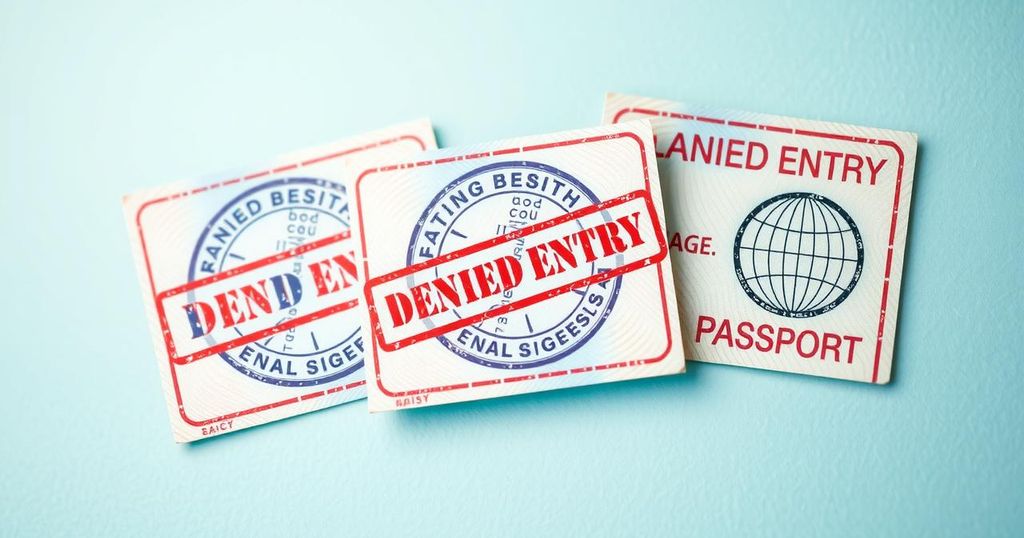Angola has denied entry to several African opposition leaders, including Tundu Lissu, Venancio Mondlane, and Ian Khama, ahead of a democracy summit. The government cited visa irregularities as the reason, while critics argue that this reflects a broader trend of silencing dissent. Political analysts question the implications of this action for Angola’s role within the African Union.
Recently, Angola faced criticism for denying entry to several prominent African political leaders scheduled to attend a conference organized by the main opposition party, Unita. Notable figures such as Tanzanian opposition leader Tundu Lissu, Mozambique’s Venancio Mondlane, and Ian Khama, the former President of Botswana, were among those affected. This summit focused on promoting democracy in the region.
Tundu Lissu expressed his dismay regarding the situation, stating that “the action of the Angolan government to prevent us from entering Angola is inexplicable and unacceptable.” The Angolan government has yet to issue an official response on the matter, as inquiries from news organizations remain unanswered.
A source from Angola’s Migration and Aliens Service (SME) indicated that the denial of entry stemmed from irregularities in the visa procedures for Mondlane and 13 members of his entourage. Overall, it was reported that at least 20 leaders from diverse political parties across Africa were barred from entering the country.
Kenyan Senator Edwin Sifuna, also denied entry, criticized the Angolan government, highlighting concerns about its claims of democracy. Other notable figures refused entry included former Colombian President Andres Pastrana and Othman Masoud Othman, Zanzibar’s first Vice-President.
Political analyst Tomas Viera Mario commented on the issue, describing the expulsion as “strange,” particularly since Angola’s President Joao Lourenco has positioned himself as a mediator in continental affairs. Mario noted that barring these leaders demonstrates a lack of respect for the pan-African spirit promoted by the African Union (AU).
The refusal of entry to high-profile opposition leaders and representatives underscores ongoing tensions within Angola’s political landscape. Critics, including the deported leaders, accuse the Angolan government of undermining democratic principles while fostering a dictatorial regime. This incident raises significant questions about Angola’s commitment to democracy and the pan-African ideals espoused by the AU, particularly under the leadership of President Lourenco.
Original Source: www.bbc.com




